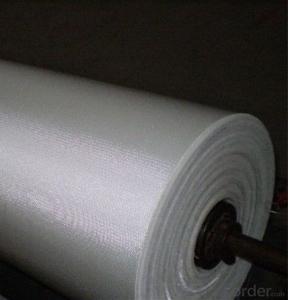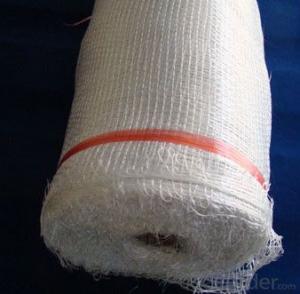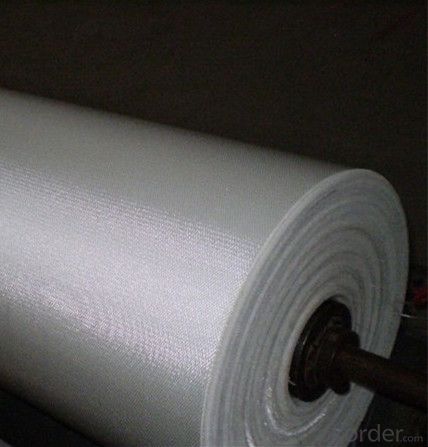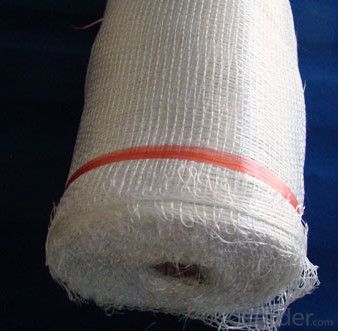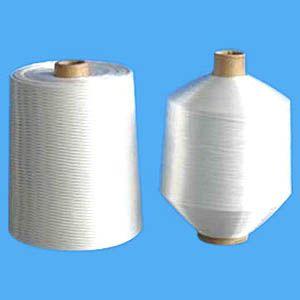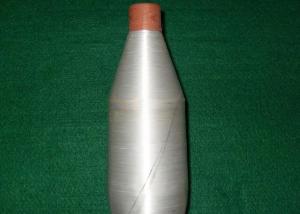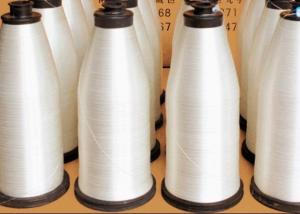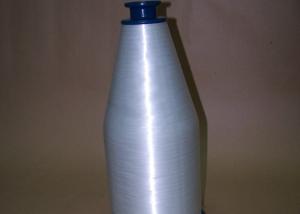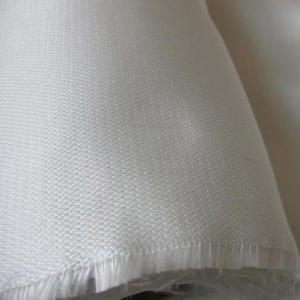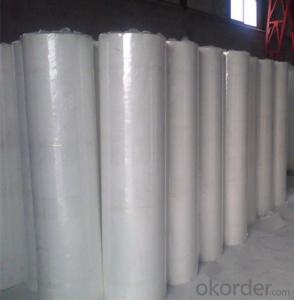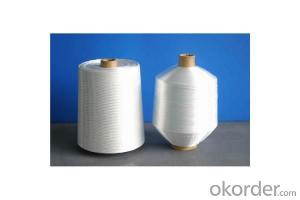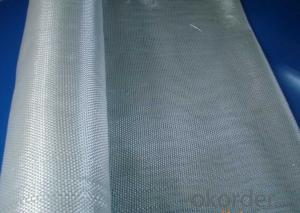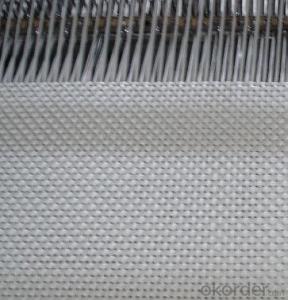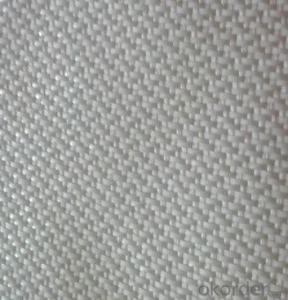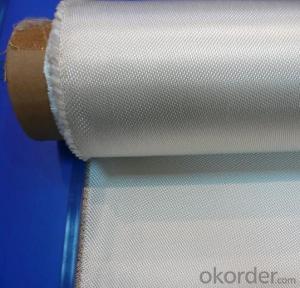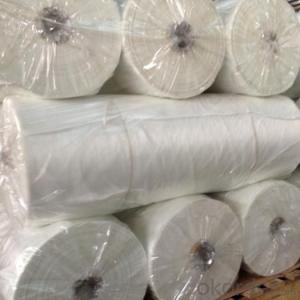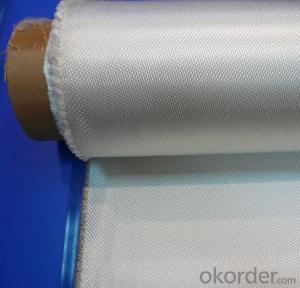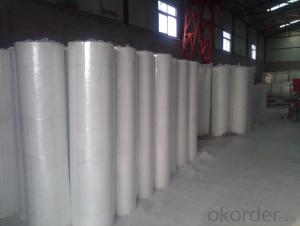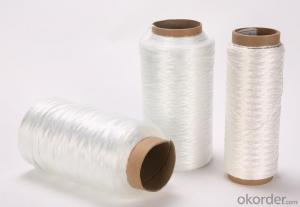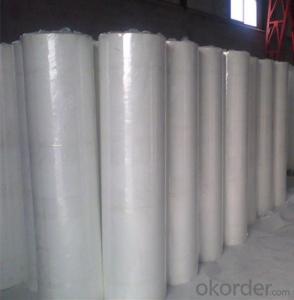Fiberglass Yarn Reinforced Fiberglass Fabric with CE Certification Wholesale
- Loading Port:
- Shanghai
- Payment Terms:
- TT OR LC
- Min Order Qty:
- 500 m²
- Supply Capability:
- 50000 m²/month
OKorder Service Pledge
OKorder Financial Service
You Might Also Like
Fiberglass Fabric with CE Certification Wholesale
Fiberglass Fabric Introduction:
Fiberglass fabric is weaved by high quality fiberglass,as a kind of engineering material,which is
many excellent characteristics:
flame-resisting,corrosion resistant,high strength,heat resistance.stable structure,good chemical resistance,durability.
Fiberglass Fabric Features:
Warp and weft yarns are parallel arrangement as flat situation, with uniform tension;
Fiber is aligned with large consistency, stable and easy operation;
Good moldability, fast and complete wet out in resins, resulting in high productivity;
Good transparency and high strength of composite products.
Fiberglass Fabric Specification:
mark | Fiber consistency(ends/ cm) |
Area weight (g/ m2) |
Thick-ness (mm) |
Width (cm) |
Length (mm) | Breaking strength(N)≥ |
weave | |||
Warp direction | Weft direction | Warp direction | Weft direction | |||||||
EW200 | 16 | 12 | 200±20 | 0.2 | 90-130 | 300-1200 | 980 | 980 | ||
EW210 | 16 | 12 | 200±20 | 0.21 | 90-130 | 300-1200 | 1080 | 1080 | Twill weave | |
Plain weave | ||||||||||
EWR360 | 3.2 | 1.8 | 354±18 | 0.35 | 50-300 | 100 | 2000 | 2000 | ||
EW280 | 16 | 10 | 280±28 | 0.26 | 90-130 | 300-1200 | 1800 | 1800 | ||
EW300 | 14 | 10 | 320±32 | 0.3 | 90-130 | 300-1200 | 1500 | 1500 | ||
EW430 | 20 | 12 | 420±42 | 0.43 | 90-130 | 300-1200 | 2000 | 2000 | Broken twill | |
EWR136 | 10 | 10 | 136±13 | 0.136 | 100 | 200 | 850 | 850 |
Plain weave | |
EWR200 | 8 | 7 | 200±20 | 0.21 | 100 | 200 | 1200 | 1200 | ||
EWR400 | 3.6 | 3.2 | 400±30 | 0.4 | 100 | 50-100 | 2500 | 2500 | ||
EWR600 | 2.6 | 2.5 | 600±50 | 0.6 | 100 | 40KG | 4000 | 4000 | ||
EWR580 | 2.5 | 2.3 | 576±29 | 0.58 | 100 | 40KG | 3850 | 3850 | ||
EWR800 | 1.8 | 1.8 | 800±60 | 0.8 | 100 | 40KG | 4600 | 4600 | ||
Product Show
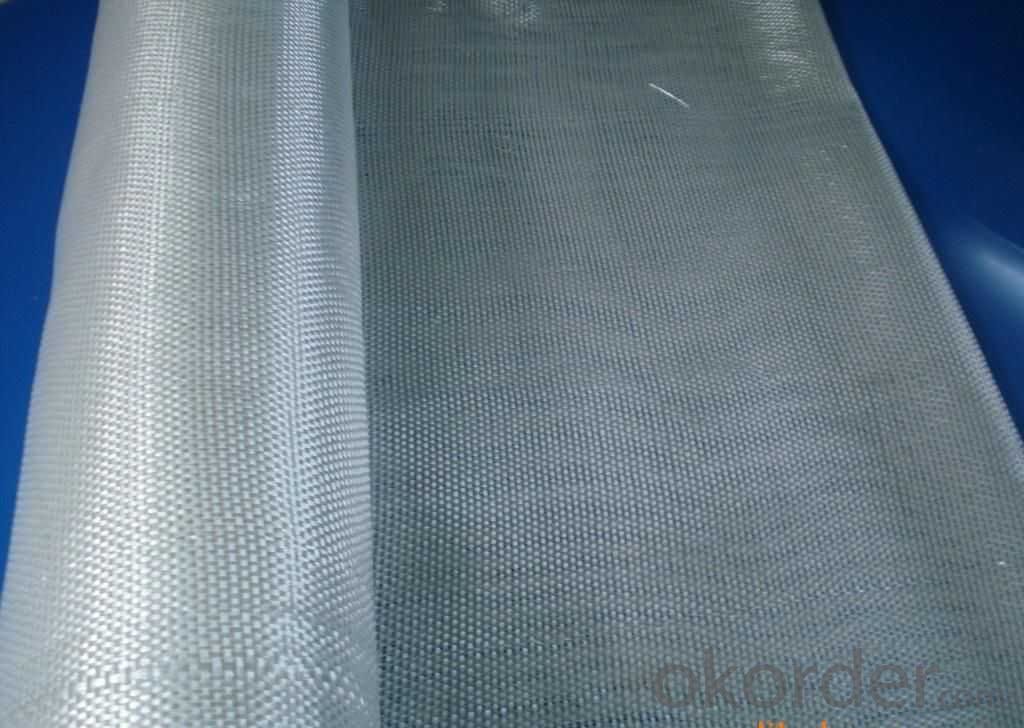
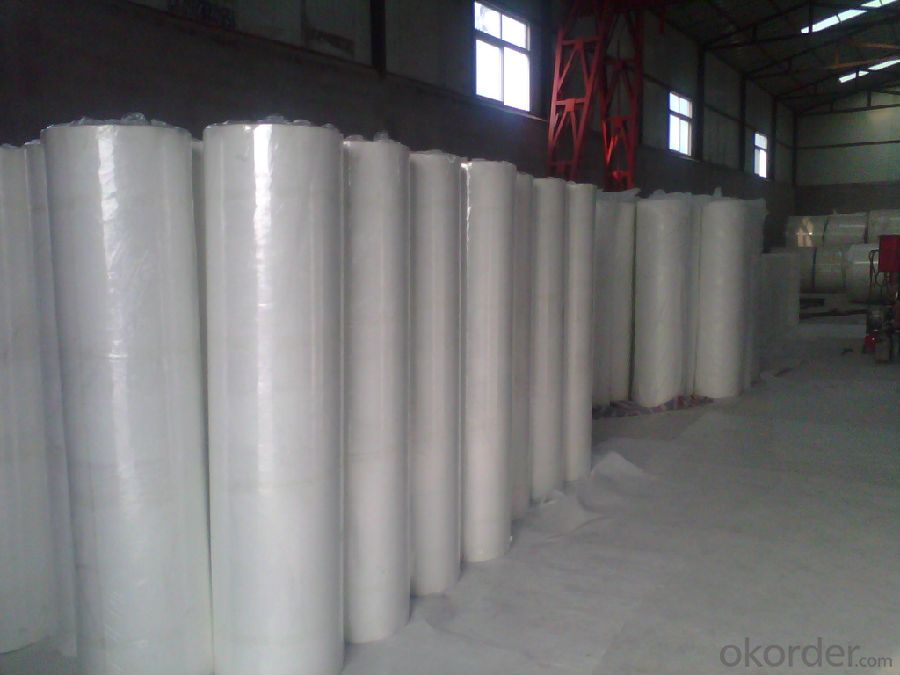
Fiberglass Fabric Usage:
E-glass woven roving is a schistose double faces reinforcement fabric that is weaved into from roving in directly.
E-glass fiber fabric (thin fabrics with thickness from 0.025 to 0.09mm) is suitable for electrical isolation mica product, wax cloth as the reinforcement materials.
E-glass woven roving applys to all kinds of polyester reinforcement system, (such as unsaturated polyester resin, vinylite,epoxy resin and phenolic resin.
E-glass woven roving is a high performance reinforcement material. It is widely used in hand lay-up and machinery processing products, (such as vessel, container, airplane and vehicle component, furniture, athletic facilities and other industry.
FAQ
1.Package of Fiberglass Fabric?
Fiberglass fabric is wound on a paper tube with inner diameters of 50. 8, 76 or 152mm. Each roll is wrapped in a plastic bag, then to be packed in a carton box. The rolls are to be horizontally placed.
Width (cm): 90, 100, 127
Length (m): 100, 200, 300, 400
2.Storage of Fiberglass Fabric?
Store rolls in a cool, dry location
Protect rolls from weather and other damage.
3.If sample available if needed?
We aim to offer our customer best Products&Service,samples are allowed if necessary.
- Q: Can fiberglass yarn be used in combination with other materials?
- Yes, fiberglass yarn can be used in combination with other materials. It is commonly combined with other types of yarn or fibers to create composite materials with enhanced properties. For example, fiberglass yarn can be combined with resin to create fiberglass-reinforced polymers, commonly known as fiberglass. This combination increases the strength, stiffness, and durability of the material. Additionally, fiberglass yarn can be used in combination with other natural or synthetic fibers to create hybrid fabrics, which can provide a balance of properties such as strength, flexibility, and heat resistance. Overall, the ability to combine fiberglass yarn with other materials allows for the creation of new materials that possess a unique combination of properties for various applications.
- Q: Is fiberglass yarn resistant to fire or flames?
- Fiberglass yarn exhibits remarkable resistance to fire or flames. Its composition, primarily silica, an inorganic substance, renders it non-combustible. With a high melting point and an inability to support combustion, fiberglass yarn proves to be an ideal option for scenarios requiring fire resistance. Moreover, it finds extensive use in the creation of fire-resistant fabrics and insulation materials, as it can endure high temperatures without ignition or emission of toxic fumes. In conclusion, fiberglass yarn boasts outstanding fire resistance attributes, establishing it as a dependable material for diverse fire safety applications.
- Q: Can fiberglass yarn be used for making window blinds?
- Yes, fiberglass yarn can be used for making window blinds. Fiberglass yarn is a versatile material that offers several advantages for window blind production. It is lightweight, durable, and resistant to moisture, fire, and UV radiation. These qualities make fiberglass yarn an excellent choice for window blinds, as it can withstand different weather conditions and prolonged exposure to sunlight. Additionally, fiberglass yarn can be easily woven or knitted into various designs, allowing for flexibility in blind styles. The use of fiberglass yarn in window blinds also adds an element of strength and stability, ensuring that the blinds remain functional and long-lasting. Overall, fiberglass yarn is a suitable material for making window blinds due to its durability, versatility, and resistance to environmental factors.
- Q: Is fiberglass yarn suitable for use in medical applications?
- Fiberglass yarn is generally unsuitable for medical applications due to its potential to cause irritation or allergic reactions upon contact with the skin. This can be particularly problematic in healthcare settings where patients with sensitive or compromised skin may be exposed to the yarn. Furthermore, the fibers of fiberglass can break off and become airborne, posing a risk of inhalation or ingestion and potentially causing respiratory or digestive issues. Moreover, fiberglass yarn does not possess inherent antimicrobial properties, which is a crucial factor in medical environments where hygiene and infection control are paramount. Therefore, materials specifically designed and tested for healthcare settings are typically preferred. These materials prioritize being hypoallergenic, non-toxic, and antimicrobial to minimize the risk of adverse reactions and infections. In conclusion, while fiberglass yarn has certain advantages, it is generally not suitable for medical applications due to the potential for irritation, lack of antimicrobial properties, and the risk of airborne fibers.
- Q: Is fiberglass yarn resistant to fungus?
- Yes, fiberglass yarn is resistant to fungus. This is because fiberglass is made from inorganic materials, primarily glass fibers, which do not provide a suitable environment for fungus to grow. Additionally, fiberglass yarn is typically coated with a special resin or finish that further enhances its resistance to fungus and other forms of biological degradation. Therefore, fiberglass yarn is commonly used in applications where resistance to fungus is important, such as in outdoor fabrics, insulation materials, and composite structures.
- Q: What are the thermal conductivity properties of fiberglass yarn?
- Fiberglass yarn typically has high thermal conductivity properties, allowing it to efficiently transfer heat.
- Q: What are the safety precautions when handling fiberglass yarn?
- To ensure personal safety while working with fiberglass yarn, it is important to observe several safety measures. First and foremost, it is crucial to wear appropriate personal protective equipment (PPE). This includes gloves, safety goggles or a face shield, long-sleeve clothing, as well as a dust mask or respirator. These precautions are necessary to avoid direct contact with the skin, eyes, and respiratory system, as fiberglass yarn can cause irritation, itching, and skin rashes. Furthermore, it is essential to handle fiberglass yarn in a well-ventilated area or utilize local exhaust ventilation to minimize the inhalation of fiberglass dust or fibers. Inhaling fiberglass dust can lead to respiratory problems and lung irritation, so it is important to avoid breathing in these particles. In addition, proper storage and handling of fiberglass yarn are vital safety measures. Storing the yarn in a dry and clean area is necessary to prevent moisture absorption, which can weaken the fibers. It is also important to refrain from dragging or dropping the yarn, as this can release airborne fiberglass particles. In case of accidental exposure or contact with fiberglass yarn, thoroughly washing the affected area with mild soap and water is necessary. If irritation persists or worsens, it is crucial to seek prompt medical attention. By adhering to these safety precautions when working with fiberglass yarn, individuals can minimize the potential health hazards associated with this material.
- Q: Can fiberglass yarn be used in the production of curtains and blinds?
- Yes, fiberglass yarn can be used in the production of curtains and blinds. It is a versatile material that offers durability, strength, and resistance to heat and moisture, making it suitable for use in window coverings. Additionally, fiberglass yarn can be woven into various patterns and textures, offering a wide range of design possibilities for curtains and blinds.
- Q: Is fiberglass yarn suitable for use in windshields?
- Fiberglass yarn, unfortunately, is not a suitable option for windshields. Despite its impressive strength and ability to withstand high temperatures, it lacks transparency, rendering it unsuitable for use in windshields. Windshields necessitate a material that is not only transparent but also durable enough to withstand impacts and extreme temperatures. Laminated glass, commonly used for windshields, consists of two layers of glass with a layer of polyvinyl butyral (PVB) sandwiched in between. This combination offers the required transparency, strength, and resistance to impacts that windshields demand.
- Q: Can fiberglass yarn be used for making swimwear?
- Yes, fiberglass yarn can be used for making swimwear. It is often used in combination with other materials to create swimwear that is durable, lightweight, and has enhanced performance properties such as resistance to chlorine and UV rays.
Send your message to us
Fiberglass Yarn Reinforced Fiberglass Fabric with CE Certification Wholesale
- Loading Port:
- Shanghai
- Payment Terms:
- TT OR LC
- Min Order Qty:
- 500 m²
- Supply Capability:
- 50000 m²/month
OKorder Service Pledge
OKorder Financial Service
Similar products
Hot products
Hot Searches
Related keywords
